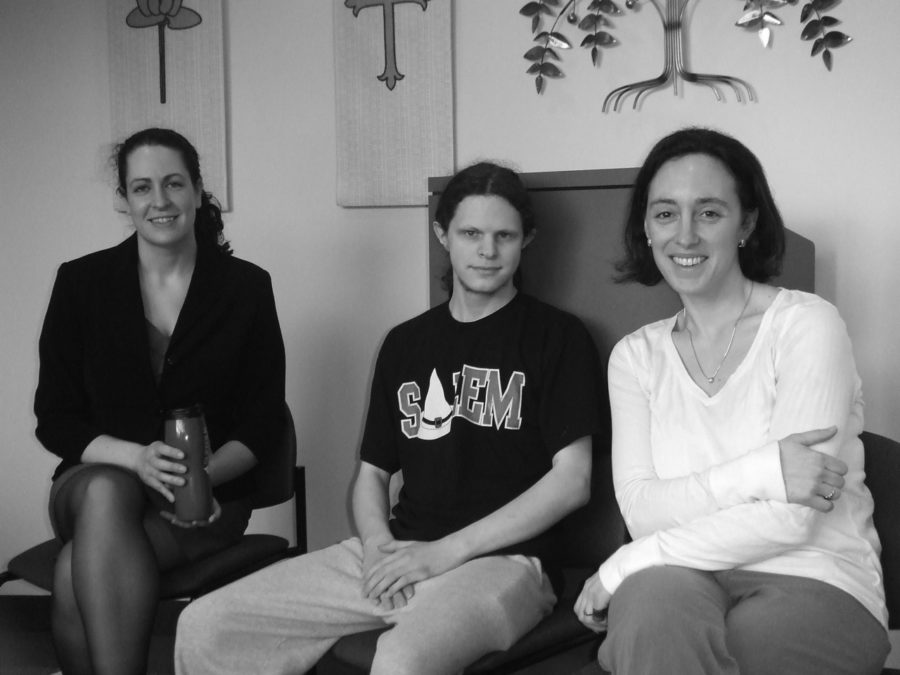Suffolk’s interfaith center, an office of the division of student affairs, provides religious events and resources for all students, faculty and staff of all religions. An interfaith room and a meditation room unite University Chaplain Reverend Amy L. Fisher with the Suffolk community.
“I would like to say my vision of what it means to be a university chaplain is what facilitated the office as an interfaith center,” said Fisher, who has served as the university’s chaplain since the interfaith center came to Suffolk in 1999. “My vision was to create a center where all religions could communicate, not just one or two.”
She also works with her two interns, Moira Pulitzer-Kennedy, a student at Harvard Divinity School, and Kathryn Henderson, a student at Andover Newton Theological School.
“We start new religious clubs as frequently as we are invited to create them,” said Fisher. “This is the interfaith center for the entire university—law school, arts and sciences, business school, grad and undergrad students.”
Existing groups, whether based through the Student Leadership & Involvement (SLI) office or the interfaith center, include Eastern Traditions and the Muslim, Roman Catholic and Jewish communities. The Jewish community is sponsored by Suffolk Hillel, directed by Ailene Gerhardt.
“We try and have a variety of events open to members of all faiths,” said Pulitzer-Kennedy. “We educate; it isn’t all a worship service. People learn and have a new experience. Everything is totally inclusive.”
“The structure of events is two-fold,” she explained. “One fold includes weekly events—Qur’an study, Torah study, Christian Bible study, Breathe, and meditation.”
Breathe consists of spiritual readings for contemplation and meditations are done through spiritual readings as well as the more traditional Buddhist format led by an expert.
Overlapping the weekly events are interfaith panel discussions held on Tuesdays, which focus on religion and faith in addition to a weekly topic. Past topics have included LGBTQ and environmental issues. Students, staff, faculty, and a variety of faiths are represented, according to Pulitzer-Kennedy.
A remaining panel of the semester regards civility and the use of modern media. “The civility panel will be about how civility and use of modern media and social network sites brings people of different faiths together to build different boundaries and diversity,” said Pulitzer-Kennedy. “Civility is something you can talk about in the context of religious beliefs.”
Next Tuesday will host a pre-Passover chocolate seder, a model liturgy that has been created for universities to use as an educational tool to teach about the seder ritual in an informal context.
Both Fisher and Pulitzer-Kennedy agreed the parties, most specifically the Hanukkah party, attract the most students. “The parties get people together for socialization and education,” said Pulitzer-Kennedy. “Kathryn even did a beading workshop, which was very hands-on for the students.”
“You don’t need to come to an event or panel, this can be just a place to sit and think,” she said.
“Students come with universal questions wanting to hear other perspectives outside their own,” said Fisher. “This is a time in their adult lives to truly mix and mingle with others outside their traditions.
Fisher serves as a counselor, spiritual guide, educational advocate, and ethical voice and will speak with anyone about things like spirituality, religion and racial issues to ethics and morality. She is available daily from 9 a.m. to 5 p.m. by appointment in Donahue 540.













